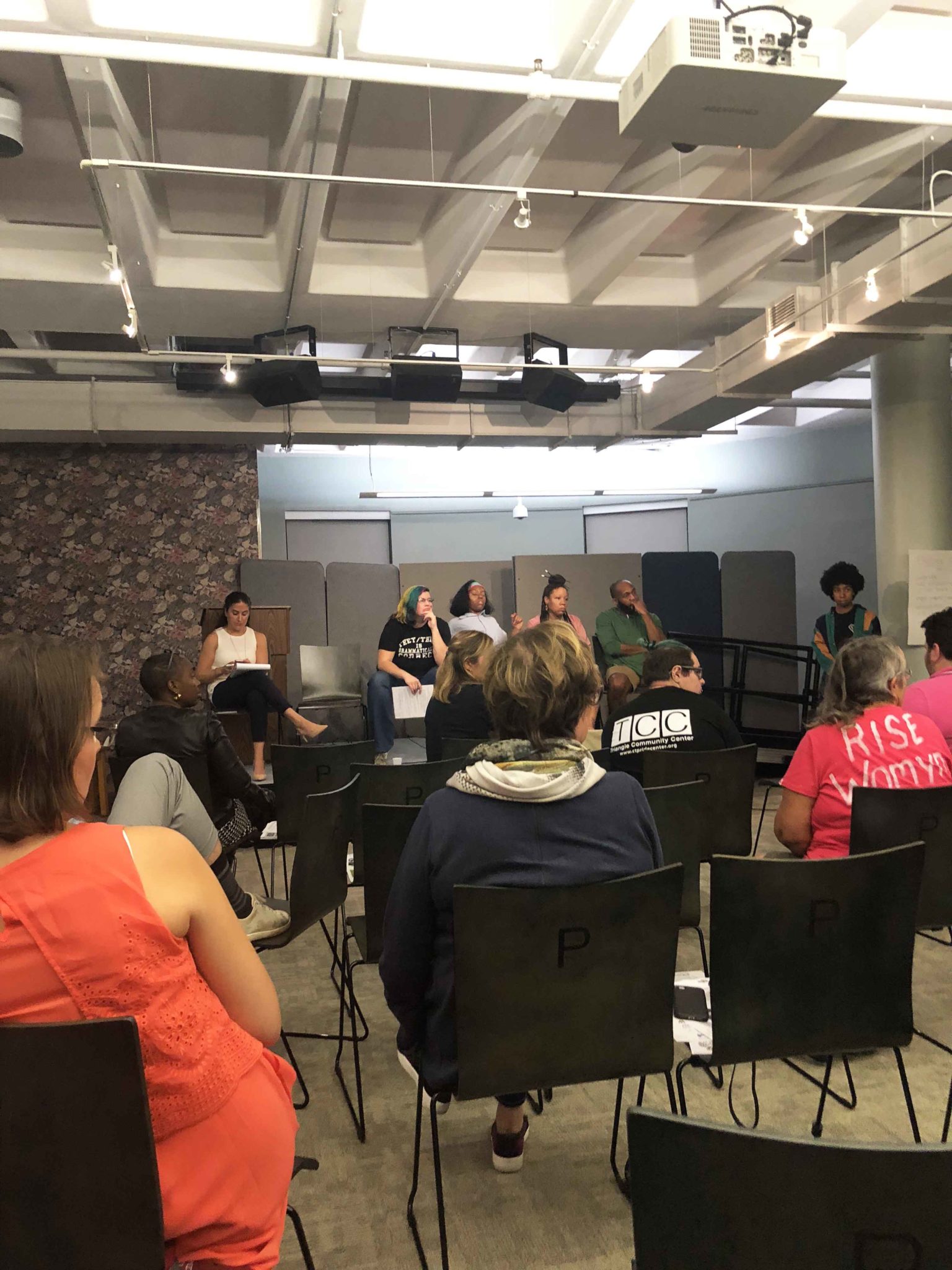
Amid renewed conversation about sexual assault in America, about 50 New Haven residents came together on Wednesday to explore an aspect of the #MeToo movement that has been controversial since the movement’s beginning — inclusivity.
On Wednesday, Nasty Women Connecticut, the New Haven Pride Center and the Connecticut Alliance to End Sexual Violence hosted a discussion at the Ives Branch of the New Haven Public Library. Six panelists from organizations around Connecticut spoke about what individuals can do to support survivors of sexual assault as well as what the #MeToo movement has meant for different marginalized groups. In addition to submitting questions for panelists to answer, a public comment portion of the event allowed attendees to engage in the dialogue.
“As Nasty Women, we have done #MeToo testimonials where we have collected #MeToo stories right here in our community and every time we share space around testimonials there are many questions that come,” said Attallah Sheppard, a New Haven educator and member of Nasty Women Connecticut. “We just want to open it to a diverse forum and think about what can we do, what can I do as an individual to make sure we are creating safe spaces for survivors.”
Attendees discussed how people could provide individual support to victims of sexual assault. All of the panelists mentioned that believing people’s stories is imperative to changing the culture of silence surrounding issues of sexual violence.
Additionally, several of the panelists focused on the question of nonbinary and transgender people in the #MeToo movement.
“How do trans people fit into the “MeToo movement? They don’t,” said Melissa Cordner, who works at True Colors, a Hartford resource center for LGBTQ youth.
Cordner said that language frequently used to talk about sexual assault as well as symbols such as the “pussy hat” and ovaries often center around cisgender women.
Orisha Ala Ochumare, an organizer with Black Lives Matter New Haven, discussed the need for people of color to be included in the conversation as well. She works largely with low-income minority communities in New Haven, for whom there are additional barriers to reporting sexual assault.
Maura Crossin, executive director of the Victim Rights Center of Connecticut, outlined many concrete ways to get involved with the movement. She affirmed the importance of voting in the upcoming elections as well as volunteering with local organizations that address sexual violence issues. According to Crossin, the Victim Rights Center is experiencing the highest volume of clients in its five-year history.
Discussion also focused on how people could access resources in Connecticut as well as how consent should be taught. Many attendees were angry with the lack of consent education for youth in schools, and Cordner added that they teach workshops to introduce the language of consent into people’s everyday lives.
“Share your resources,” they said. “You don’t need to be a survivor to be an ally to survivors. Make sure people know you are a safe place.”
The event was held only weeks after Supreme Court nominee Brett Kavanaugh ’87 LAW ‘90 was accused of sexual assault by several women, sparking national conversation.
The International Socialist Organization of New Haven will host an event next Wednesday at 323 Temple St. titled “#MeToo vs. the Supreme Court.”
Carolyn Sacco | carolyn.sacco@yale.edu .







